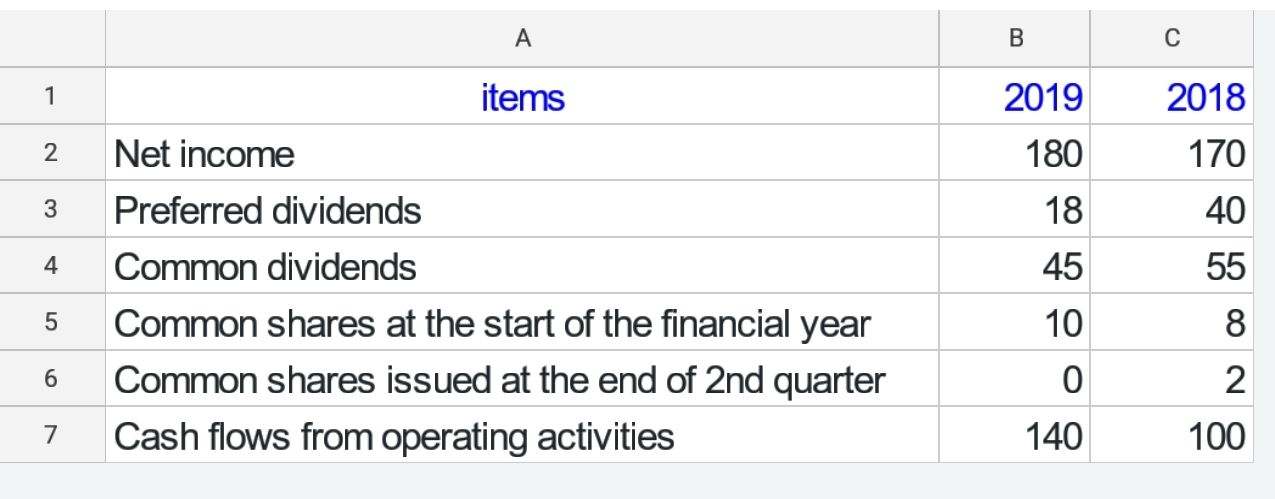

Finance
What Is Share Savings
Published: January 16, 2024
Learn all about share savings and how it can help you manage your finances effectively. Discover expert tips and tricks to maximize your savings.
(Many of the links in this article redirect to a specific reviewed product. Your purchase of these products through affiliate links helps to generate commission for LiveWell, at no extra cost. Learn more)
Table of Contents
Introduction
Welcome to the world of personal finance, where saving your hard-earned money is a crucial step towards financial stability and success. There are various saving options available to individuals, and one such option is Share Savings.
Share Savings refers to a type of savings account offered by credit unions and some financial institutions. It provides individuals with an opportunity to save money while also gaining a sense of ownership in the financial institution they are a member of.
In this article, we will dive into the details of Share Savings, exploring its definition, purpose, how it works, benefits, potential risks, and considerations. We will also compare Share Savings to other savings options, giving you a comprehensive understanding of this financial tool.
Whether you are just starting your financial journey or looking for additional savings options, Share Savings can be a valuable addition to your financial strategy. So, let’s explore this saving option further and discover how it can positively impact your financial life.
Definition of Share Savings
Share Savings is a type of savings account that is typically offered by credit unions and some financial institutions. It is designed to encourage individuals to save money while providing them with a sense of ownership in the institution they are a member of.
When you open a Share Savings account, you become a member of the credit union or financial institution. This membership entitles you to certain benefits and rights, such as voting for the board of directors and participating in the decision-making process of the institution.
Unlike traditional savings accounts, Share Savings requires individuals to maintain a minimum balance in their account to maintain membership and enjoy the associated benefits. This minimum balance varies from one institution to another but is usually relatively low.
Share Savings accounts are often associated with lower fees and higher interest rates compared to regular savings accounts offered by traditional banks. This makes them an attractive option for individuals looking to maximize their savings potential and earn more on their deposits.
It’s important to note that Share Savings accounts are insured by the National Credit Union Administration (NCUA) for credit unions and the Federal Deposit Insurance Corporation (FDIC) for banks. This means that even if the credit union or financial institution were to face financial difficulties, your deposits would be protected up to a certain amount.
In summary, Share Savings is a unique type of savings account that not only helps individuals save money but also allows them to become members of a credit union or financial institution. It offers attractive interest rates, lower fees, and potential voting rights, making it an appealing option for individuals looking to grow their savings while being part of a larger financial community.
Purpose of Share Savings
The primary purpose of Share Savings is to provide individuals with a safe and accessible avenue for saving money while fostering a sense of ownership and community within a credit union or financial institution. Let’s explore the key purposes and benefits of Share Savings in more detail:
- Encouraging Savings: Share Savings accounts are specifically designed to encourage individuals to save money regularly. By establishing this dedicated savings account, individuals can develop good financial habits and work towards achieving their financial goals.
- Building Financial Security: Share Savings accounts help individuals build a financial safety net. By consistently depositing money into their account, individuals can accumulate funds for emergencies or future expenses, such as buying a home or funding education.
- Earning Interest: Share Savings accounts typically offer higher interest rates compared to regular savings accounts offered by traditional banks. This means that individuals can grow their savings more effectively and have the potential to earn passive income through the interest accrued.
- Ownership and Membership Benefits: By opening a Share Savings account, individuals become members of a credit union or financial institution. This membership often comes with additional benefits such as voting rights, access to exclusive products and services, and a voice in the direction and governance of the institution.
- Supporting Local Communities: Credit unions, which commonly offer Share Savings accounts, are known for their community-focused approach. By saving with a credit union, individuals contribute to the local economy and support initiatives that benefit their community.
Share Savings accounts are not only a practical way to save money but also serve a broader purpose in promoting financial stability, fostering community connections, and empowering individuals through membership in a credit union or financial institution.
Now that we understand the purpose of Share Savings, let’s delve into how these accounts actually work and how you can benefit from them.
How Share Savings Work
Share Savings accounts work in a similar way to traditional savings accounts. Let’s take a closer look at the key aspects and mechanics of how Share Savings accounts operate:
- Account Establishment: To open a Share Savings account, individuals must meet the eligibility requirements of the credit union or financial institution. This typically involves becoming a member of the institution by meeting certain criteria, such as living in a specific geographic area or being affiliated with a particular organization.
- Minimum Balance: Share Savings accounts often require individuals to maintain a minimum balance in their account to maintain membership and enjoy associated benefits. This minimum balance requirement varies from one institution to another, but it is generally modest.
- Deposits and Withdrawals: Individuals can deposit money into their Share Savings account either through direct deposits, cash deposits, or transfers from their linked accounts. Withdrawals can be made in various ways, such as through in-person visits to the credit union or institution, ATM withdrawals, or online transfers.
- Interest Accrual: Share Savings accounts typically earn interest on the balances held in the account. The interest rate offered by the credit union or financial institution may vary, and it is important to review the terms and conditions to understand how interest is calculated and credited to the account.
- Membership Benefits and Services: By opening a Share Savings account, individuals become members of the credit union or financial institution. This membership often comes with additional benefits, such as access to other financial products and services, discounted rates on loans and mortgages, and participation in the decision-making process of the institution.
It’s important to note that Share Savings accounts prioritize savings over transactional activities. While individuals can access their funds when needed, these accounts are not designed for frequent, everyday transactions like checking accounts. Instead, they serve as a secure and long-term savings vehicle.
In summary, Share Savings accounts provide individuals with a platform to save money while offering the benefits of membership in a credit union or financial institution. By understanding how these accounts work, individuals can make informed decisions about their savings strategy and maximize the potential for financial growth.
Benefits of Share Savings
Share Savings accounts offer several benefits that make them an appealing option for individuals looking to grow their savings. Let’s explore some of the key advantages of having a Share Savings account:
- Higher Interest Rates: Share Savings accounts typically offer higher interest rates compared to regular savings accounts offered by traditional banks. This means that individuals can grow their savings more effectively and potentially earn more on their deposits over time.
- Lower Fees: Credit unions, which commonly offer Share Savings accounts, are known for their customer-friendly fee structures. Share Savings accounts often come with lower fees compared to traditional banks, helping individuals save money on account maintenance and transactions.
- Membership Benefits: By opening a Share Savings account, individuals become members of a credit union or financial institution. This membership comes with a range of benefits, such as access to exclusive financial products and services, discounted rates on loans and mortgages, and potential voting rights to influence the institution’s operations.
- Community Focus: Credit unions that provide Share Savings accounts are known for their community-oriented approach. By saving with a credit union, individuals support local initiatives and contribute to the well-being of their community and its members.
- Financial Education: Many credit unions prioritize financial education and offer resources, workshops, and counseling to help members improve their financial literacy and make informed decisions about their savings and investments. Share Savings account holders can benefit from these educational opportunities.
- Insured Deposits: Share Savings accounts are insured by the National Credit Union Administration (NCUA) for credit unions and the Federal Deposit Insurance Corporation (FDIC) for banks. This means that even if the credit union or financial institution were to face financial difficulties, individuals’ deposits would be protected up to a certain amount.
By taking advantage of these benefits, individuals can make the most of their Share Savings account and work towards their financial goals while enjoying a sense of ownership and community.
Now that we have explored the benefits of Share Savings, let’s take a moment to consider some potential risks and considerations associated with these accounts.
Potential Risks and Considerations
While Share Savings accounts offer many advantages, it’s important to consider some potential risks and factors to make informed decisions. Let’s explore the key risks and considerations associated with Share Savings accounts:
- Membership Eligibility: Share Savings accounts are typically offered by credit unions, which have membership eligibility requirements. Individuals must meet these requirements to open an account. It’s important to ensure you are eligible to become a member before pursuing a Share Savings account.
- Access to Funds: Share Savings accounts prioritize savings over transactional activities, which means accessing funds may not be as convenient or immediate as with checking accounts. Consider your need for liquidity and ensure you have an alternative source for everyday transactions.
- Withdrawal Restrictions: Some Share Savings accounts may impose restrictions on the number of withdrawals or transactions allowed per month. Review the terms and conditions to understand any limitations and ensure they align with your financial needs and goals.
- Interest Rate Fluctuations: Like any savings account, the interest rates on Share Savings accounts may fluctuate over time. It’s important to monitor interest rate trends and evaluate the competitiveness of the rates offered compared to other savings options.
- Institution Stability: While Share Savings accounts are typically insured, it’s prudent to assess the stability and reputation of the credit union or financial institution. Research their financial standing, read customer reviews, and ensure they have a solid track record before entrusting them with your savings.
- Opportunity Cost: Consider the opportunity cost of tying up your savings in a Share Savings account. If you have other financial goals or investment opportunities that could potentially offer higher returns, weigh the benefits of a Share Savings account against alternative options.
By carefully evaluating these risks and considerations, individuals can make informed decisions about opening and maintaining a Share Savings account. It’s essential to assess your personal financial situation, goals, and risk tolerance to determine if Share Savings aligns with your overall savings strategy.
Now, let’s compare Share Savings to other savings options to give you a broader perspective.
Comparison to Other Savings Options
When it comes to saving money, individuals have several options to choose from. Let’s compare Share Savings accounts to other common savings options to help you make an informed decision:
- Regular Savings Accounts: Share Savings accounts often offer higher interest rates compared to regular savings accounts offered by traditional banks. They also come with the added benefits of credit union membership, potentially lower fees, and a community-oriented approach.
- Certificates of Deposit (CDs): Certificates of Deposit are fixed-term deposits that typically offer higher interest rates than Share Savings accounts. However, they come with a fixed maturity period, locking your money away for a specified term, and early withdrawals may result in penalties.
- Money Market Accounts: Money Market accounts are similar to savings accounts but usually offer higher interest rates and check-writing capabilities. However, they may require higher minimum balances, and the interest rates may not be as competitive as those of Share Savings accounts.
- High-Yield Savings Accounts: High-Yield Savings accounts are online-based savings accounts that often have higher interest rates compared to traditional savings accounts. While they may offer competitive rates, they may not provide the additional benefits of credit union membership that Share Savings accounts offer.
- Investments: Share Savings accounts are low-risk savings options suitable for short-term goals and emergency funds. If you have a longer-term horizon and are willing to take on more risk, investment options such as stocks, bonds, or mutual funds may offer higher potential returns but come with increased market volatility.
Ultimately, the best savings option for you depends on your financial goals, risk tolerance, and personal preferences. It may be beneficial to diversify your savings across different types of accounts based on your specific needs and priorities.
Now that you have a better understanding of Share Savings compared to other savings options, let’s summarize the key points.
Conclusion
Share Savings accounts provide individuals with a unique opportunity to save money while also becoming part of a credit union or financial institution. These accounts offer higher interest rates, lower fees, and potential membership benefits, making them an appealing option for individuals looking to grow their savings. By maintaining a Share Savings account, individuals can build financial security, earn passive income through interest accrual, and contribute to their local community.
While Share Savings accounts have many benefits, it’s important to consider potential risks and factors such as membership eligibility, access to funds, and institution stability. Evaluating these considerations will help individuals make informed decisions about their savings strategy and determine if Share Savings aligns with their financial goals and needs.
When comparing Share Savings to other savings options, individuals may find that the higher interest rates and membership benefits set Share Savings accounts apart from regular savings accounts. However, individuals with longer-term horizons or a higher risk tolerance may consider alternative options such as Certificates of Deposit or investment vehicles for potentially higher returns.
In summary, Share Savings accounts offer a combination of competitive interest rates, lower fees, membership benefits, and community focus. By understanding the purpose, mechanics, benefits, and considerations of Share Savings, individuals can make informed decisions to effectively grow their savings and achieve their financial goals. So, consider opening a Share Savings account and embark on your journey towards financial stability and success.














